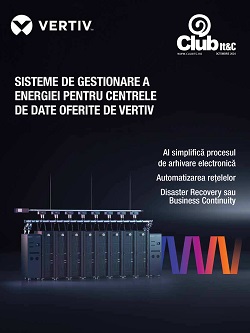Vodafone today announced a major initiative to extend the life of new mobile phones and encourage customers to trade in or recycle their old devices, helping the mobile industry move towards a more ‘circular economy’ that minimises waste and further reduces carbon emissions.
 Starting in European markets from Spring 2022, Vodafone customers will be offered a comprehensive and convenient suite of services, including insurance, support and repairs for their devices. Vodafone will launch a new digital platform making it straightforward for customers to agree trade-in options for their existing phones.
Starting in European markets from Spring 2022, Vodafone customers will be offered a comprehensive and convenient suite of services, including insurance, support and repairs for their devices. Vodafone will launch a new digital platform making it straightforward for customers to agree trade-in options for their existing phones.
Vodafone will also encourage customers to return any mobile devices that are at the end of their ability to function, and, wherever possible, will ensure that they are recycled responsibly or repurposed for social or charitable causes. In addition, Vodafone will begin to offer a wider range of high-quality, competitively priced refurbished smartphones at retail.
Vodafone and Recommerce today announced a strategic partnership for wholesale trade-in and asset management, enabling Europe’s largest smartphone customer base to benefit from high quality, pre-owned devices at retail.
Alex Froment-Curtil, Vodafone Group Chief Commercial Officer, said: “Vodafone has a leading role to play in developing and driving a circular economy for mobile devices that significantly reduces their impact on the environment. We are pioneering a comprehensive, digital offering that makes it easier for our customers to extend the life of their current smartphone, or to buy and own a refurbished device.”
Augustin Becquet, CEO Recommerce said: “We are very proud to launch this partnership together with Vodafone who are launching the largest and most advanced device lifecycle management program in Europe. We are convinced of the real impact of such a long-term partnership for the environment and to fight climate change.”
Keeping a phone handset for an extra year can reduce its lifetime CO2e impact by up to 29%. Purchasing a refurbished smartphone saves around 50 Kg CO2e – 20% or less than the equivalent newly manufactured smartphone – and removes the need to extract 164 Kg of raw materials. More than 50,000 tonnes of CO2e could potentially be avoided for every million smartphones Vodafone receives via trade-in that are subsequently refurbished and resold.
Most Vodafone markets already operate trade-in, device buyback and repair services to encourage customers to repair or return their old devices. Vodafone’s commitment today will ensure that all customers in Europe will be able to benefit from a comprehensive, consistent digital approach, including:
• Insurance for new phone purchases, giving protection against accidental damage.
• Flexible trade-in options via a simple-to-use consumer app, enabling customers to swiftly receive payment for their existing handset or credit towards the purchase of a newer phone.
• Fast repair services that can extend the life of accidentally damaged devices.
• Retailing at scale a range of high-quality refurbished, pre-owned handsets alongside newer devices.
• Encouraging customers to hand back their old mobile phones for recycling or for social / charitable causes.
Vodafone launched a “Bring Back Friday” consumer campaign across several markets on Black Friday, 26 November 2021. This encouraged customers to trade in their old phones and receive credit for new devices, whilst ensuring that devices are recycled or repurposed responsibly.
In addition to consumer mobile devices, Vodafone’s programme of refurbishing and reusing fixed-line routers and TV set-top boxes in Germany, Portugal and Spain will be expanded to further markets, reducing the associated environmental and cost impacts.
Joakim Reiter, Chief External and Corporate Affairs Officer, and leading Vodafone’s planet activities, said: “In recent years Vodafone has made significant progress in eliminating our carbon footprint, improving energy efficiency across our operations, revamping our procurement to support sustainability, and driving carbon enablement for our customers. The next frontier of our planet strategy is now focussed on building a more circular economy for consumers and industry, and through own actions and in collaboration with partners developing innovative programmes that can tackle the growing challenge around electronic waste.”
Minimising network waste
Vodafone has pledged to reuse, resell, or recycle 100% of its network waste by 2025. To deliver this, Vodafone has implemented resource efficiency and waste disposal management programmes across every market to minimise the environmental impact of network waste and redundant IT equipment.
Vodafone operates an internal asset marketplace that encourages its markets to re-sell and re-purpose excess stock or large decommissioned electrical items like masts and antennae, with results showing an 89% lower carbon impact for reused equipment compared with purchasing new equipment.[3] Vodafone is currently assessing the possibility of expanding the solution to partner markets and other operators.
Partnering to reduce waste
In 2021, Vodafone joined the Circular Electronics Partnership, which brings together leaders across the value chain to drive circularity solutions for electronics.
In May 2021, Vodafone also joined forces with four of Europe’s leading network operators to launch a new pan-industry Eco Rating labelling scheme to help consumers identify and compare the most sustainable mobile phones and encourage suppliers to reduce the environmental impact of their devices.
Reducing carbon emissions and driving energy efficiency
In November 2020, Vodafone set an approved 2030 Science-Based Target in line with carbon reductions required to keep global warming to 1.5oc, becoming the first major telecoms operator to follow the emission reduction pathway developed for the ICT sector.
By 2030, Vodafone will eliminate its carbon footprint from its own activities and from energy it purchases and uses (Scope 1 and 2). Vodafone also pledged that by 2030 it will halve carbon emissions from Scope 3 sources, including joint ventures, all supply chain purchases, the use of products it has sold and business travel.
By 2040, Vodafone will have eliminated its Scope 3 carbon footprint completely – bringing forward by ten years Vodafone’s original 2050 ambition to reach ‘net zero’ across its full carbon footprint.
Vodafone is committed to purchasing all electricity from renewable sources. Vodafone’s entire European operations – including mobile and fixed networks, data centres, retail, and offices – are already 100% powered by electricity from renewables. Vodafone is now working to achieving the same step-change in Africa by 2025
Vodafone continues to invest in energy efficiency and on-site renewable projects, included sourcing and deploying more efficient network equipment and decommissioning legacy equipment in its core network.
Enabling Vodafone customers to reduce their own emissions
Vodafone is committed to helping its business customers reduce their own carbon emissions by a cumulative total of 350 million tonnes globally over ten years between 2020 and 2030 – equivalent to Italy’s total annual carbon emissions for 2019.
Vodafone’s Internet of Things services will deliver most of this saving for customers, helping them improve the efficiency of logistics and fleet management efficiency, smart metering, manufacturing, and other activities.
Working with suppliers
Vodafone applies a 20% weighting for environmental and social criteria when suppliers tender for new work, examining whether they have environmental policies to address carbon reduction, renewable energy, plastic reduction, circular economy, and product life cycle.






























